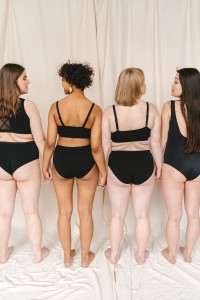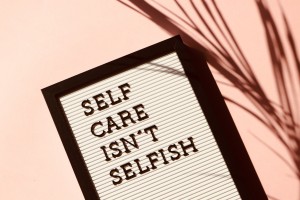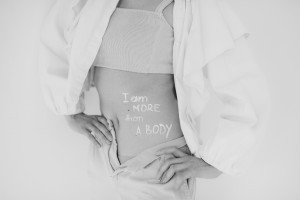Counselling Newcastle
Counselling Newcastle
Master the art of self-acceptance: Tips for body image support

Apparently today is blue Monday, although I don’t believe in it I am aware that many find this time of year difficult. It’s okay to take the month of January slowly with no goals. We are navigating life at our own pace. And if you are struggling today or any day then reach out to someone. Remember if you can’t speak with a friend, colleague or family member that Samaritans is open 24 / 7 and the crisis team in your local area is always available.
The first blog of 2024! If you are new to reading; then welcome to the musings of a psychologist. If you’ve read previously, then you’ll be used to my ramblings of all subjects. Body image is a special one in my soul, something I celebrate for all and a topic very ‘hot’ in clinic. The body is our tool. A vessel. And something us humans ignore until we have a pain or ache. I promote personally and professionally to pay close attention to the body, at times it can let us know how we are feeling before our mind can articulate. Somatic Therapy has a place within therapy and a topic for another time. Instead of asking how do I feel ask where do I feel this in body? Try it…that’s us starting to listen to our body. For now…
We all have it, a body image. For some people they may notice their ‘imperfections’ and celebrate their body or focusing on other areas of their life so it’s less important (a more rounded view). Then for some their thoughts, feelings are consumed by their body image, influencing behaviours and relationships.
When someone has a ‘negative’ perception of their body, they often feel inadequate and believe that they are not good enough. This can lead to a constant feeling of self-doubt and a lack of confidence in various aspects of their life. Low self-esteem can also contribute to feelings of low mood and anxiety, as individuals may constantly compare themselves to others and feel like they don’t measure up. What is measuring up? We are surrounded by social media and adverts constantly selling us items, a society that at times celebrates the value of humans as the exterior world.
Body Dysmorphic Disorder (BDD) is a mental health condition in which individuals obsess over perceived flaws in their appearance. They may spend excessive amounts of time checking and scrutinising their body, which can lead to feelings of distress and interfere with their daily functioning. BDD often coexists with other mental health disorders, such as depression and social anxiety, and can have a significant impact on an individual’s overall well-being. Negative body image can also contribute to the development of eating disorders.
Many individuals with a negative body image may engage in unhealthy behaviours such as extreme dieting, excessive exercise, or even purging to try and achieve what they perceive as the ideal body. These behaviours can lead to serious physical and psychological consequences, including malnutrition, organ damage, and a preoccupation with food and weight that can consume their thoughts and negatively impact their relationships and daily life. Some people may experience social isolation and avoidance, feeling ashamed or embarrassed about their appearance, leading them to withdraw from social activities and avoid situations where they may be exposed or judged. The negative impact on social relationships can further perpetuate negative body image, creating a vicious cycle of isolation and negative self-perception.
One practical tip to improve body image is to focus on self-acceptance and self-care. This involves treating your body with kindness and respect, regardless of its size or shape. Engaging in activities that make you feel good about yourself, such as balanced exercising for enjoyment rather than solely for weight loss. Practice self-care rituals like taking relaxing baths, getting enough sleep, and nourishing your body with nutritious foods. By prioritising self-acceptance and self-care, you can cultivate a positive (we aim for neutral in clinic) relationship with your body and enhance your body image.
Challenging negative thoughts and beliefs about your body. Often, our perception of our bodies is distorted by societal standards and unrealistic ideals. When negative thoughts arise, try to counter them with positive affirmations. Focus on the things you appreciate about your body, such as its strength, resilience, or ability to carry you through life’s challenges. Surround yourself with positive influences, such as body-positive social media accounts or supportive friends who celebrate diversity and promote body acceptance. In clinic; I find it’s important to explore pre history of body inclusive of family and friends growing up. Taking a holistic and in-depth perspective is vital. There is no quick fix to valuing our body more.
Engaging in activities that promote body positivity can also be beneficial. This can involve participating in body-positive communities or attending workshops and events that focus on body acceptance. Surrounding yourself with like-minded individuals who embrace diverse body types can help you feel more comfortable and confident in your own skin. Additionally, educating yourself about the harmful effects of body shaming and the unrealistic beauty standards perpetuated by the media can empower you to challenge these societal norms and embrace a more positive body image.
Lastly, it is important to remember that body image is not solely about appearance. Cultivating a positive body image involves valuing yourself for who you are as a whole person, beyond your physical appearance. Focus on your strengths, talents, and accomplishments, and celebrate the unique qualities that make you who you are. By shifting your focus away from solely external factors, you can develop a more holistic and positive perspective on your body and overall self-worth. It is important to recognise and address the psychological effects of a negative body image. Seeking professional help, such as therapy or counseling, can be beneficial in improving body image and addressing underlying issues. Additionally, practicing self-compassion, focusing on positive aspects of oneself beyond physical appearance, and surrounding oneself with supportive and body-positive individuals can also contribute to improving body image and overall well-being.





